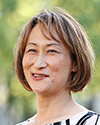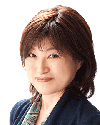There are a growing need and increasing attention for activities which spotlight the inclusivity of arts in recent years. Such movement introduced legislation for promoting artistic activities for people with disabilities. On the other hand, we, as practitioners of “arts activities leading to social inclusion,” are still trying to figure out how to handle those activities and how to deliver them with higher quality.
The Tokyo Bunka Kaikan, therefore, launched lectures and skill-up training to sort out the points we need to understand on practicing “arts activities leading to social inclusion.” The focus will be on performing arts such as music and dance.
The forum is in collaboration with the Tokyo Metropolitan Art Museum and the experts of social inclusion and aged society. We work together to organize the current situations and tasks of the subject matter and reconsider the potential and the roles that arts and music can fulfill in our society.
Lecture#1 “An introduction to Social Inclusion”
Mia Nakamura (Sociology of Music and Arts / Associate Professor, Graduate School of Design, Kyushu University)
“Social Inclusion” is a term you almost get it but not quite. This lecture offers an insight into the potential of arts and music to develop an inclusive society, reflecting on their fundamental roles.
Lecture#2 “The 100-year Life and Arts”
Nahoko Kusaka (Psychology of Aging / Professor, Faculty of Contemporary Social Studies, Doshisha Women’s College of Liberal Arts)
Our target is Wonderful Aging. Through this lecture, we draw the connection between the purpose of life and the creativity of arts and music to live a fulfilling life in old age.
(The case study of the music workshops for senior citizens hosted by the Tokyo Bunka Kaikan is included.)
Discussion “Social Inclusion and Arts/Music in an Aged Society”
Nahoko Kusaka / Mia Nakamura
The discussion tries to figure out the social roles that arts and music can take to achieve a pluralist society and live through a lively life.

Mia Nakamura (Sociology of Music and Arts / Associate Professor, Graduate School of Design, Kyushu University)
After graduating from the Tokyo University of the Arts, Nakamura continued her study at the graduate school of the University of Michigan and other places in musicology and cultural studies. She works on proposals for cultural policy and research on the process and structure that arts activities influence people and societies, focusing on the physical nonverbal communication of culture and arts. Nakamura currently serves as the deputy director of Social Art Lab of Kyushu University which commits itself to the social issues through arts. She is the author of Hajimete no “Shakai Hosetsu x Bunka Geijutsu” Handbook (Beginners Handbook for “Social Inclusion x Culture and the Arts” ) (joint research between the Agency for Cultural Affairs, Government of Japan and Kyushu University), Ongaku wo Hiraku—Arts, Care, Bunka no Trilogy (Open up music—a trilogy of Arts, Care, and Culture) (Suiseisha, 2013). Nakamura received her Ph.D. from the Tokyo University of the Arts.

Nahoko Kusaka (Psychology of Aging / Professor, Faculty of Contemporary Social Studies, Doshisha Women’s College of Liberal Arts)
Kusaka does research on a “community of practice,” which encourages both “individual independence” and “symbiosis” by cooperating among diverse people of all ages and leads to the fulfillment of people’s lives. “Wonderful Aging” is a term she created to define as the fulfilling aging process that one can keep pursuing one’s purpose in life. Recently, she has worked on empirical research about the prevention of depression and dementia for the elderly collaborating with Kyoto and Kyotanabe city (Kyoto, Japan) and examination of developmental support for life design in old age. Kusaka is the author of numerous books including Wonderful Aging—Jinsei Kohan wo Yutaka ni Ikiru Positive Shinrigaku (Wonderful Aging—Positive Psychology to live fulfilling later lives) (Nakanishiya, 2012). She received her Ph.D. (educational psychology), completing the doctoral course in the educational psychology major of the Graduate School of Humanities, Kwansei Gakuin University. She is also an FJCBCP (Foundation of the Japanese Certification Board for Clinical Psychologists) credentialed clinical psychologist and a nationally licensed psychologist.
People in the field of arts, music, education, and social welfare; artists; cultural administration personnel; students; researchers; and such
Free
60 (first-come-first-served basis)
Peatix Application Form (only in Japanese)
[Notes]
*The lectures and discussion are conducted only in Japanese.
*The program is subject to change under certain circumstances.
*Pre-school children are not allowed to attend this event.
Tokyo Bunka Kaikan, Production Section
TEL: 03-3828-2111
Tuesday, October 22 2019, 14:00 – 16:00 (Open 13:30)
Tokyo Metropolitan Art Museum, Art Study Room (8-36 Ueno-Park Taito-ku, Tokyo)